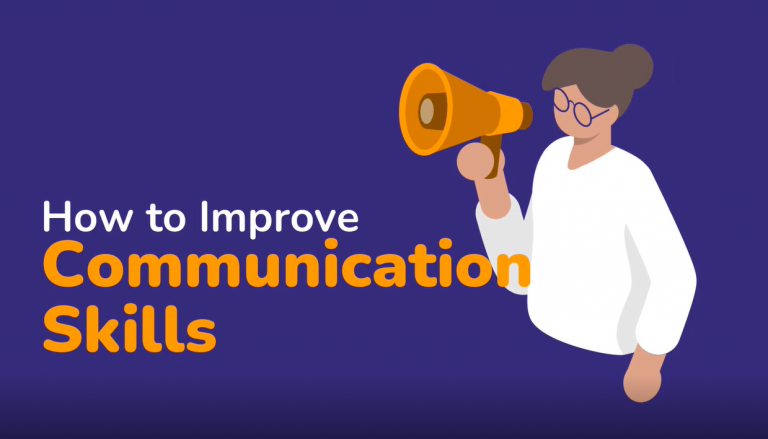How to Develop Effective Communication Skills 2024, In today’s interconnected world, effective communication skills are essential for personal and professional success. Whether you’re interacting with colleagues, clients, or loved ones, the ability to convey your thoughts clearly, listen actively, and communicate with empathy can foster understanding, build strong relationships, and facilitate collaboration.
Effective communication is a multifaceted skill that encompasses verbal and non-verbal elements, as well as the ability to adapt your communication style to different situations and audiences. By developing these skills, you can improve your interpersonal relationships, enhance your professional opportunities, and navigate various aspects of life more smoothly.
- Enhance Your Listening Skills
Effective communication begins with active listening. Truly listening involves more than just hearing words; it requires focus, attention, and the ability to understand the underlying meaning and context. Develop your listening skills by practicing mindfulness, maintaining eye contact, avoiding distractions, and summarizing or rephrasing what you’ve heard to ensure comprehension. - Improve Your Non-Verbal Communication
Non-verbal cues, such as body language, facial expressions, and tone of voice, can convey powerful messages and enhance or contradict your verbal communication. Develop self-awareness by observing yourself in the mirror or recording yourself during practice sessions. Pay attention to your posture, gestures, and facial expressions, and work on aligning your non-verbal cues with your intended message. - Adapt Your Communication Style
Effective communicators understand the importance of tailoring their communication style to different audiences and situations. Consider the cultural backgrounds, knowledge levels, and communication preferences of those you are addressing, and adjust your language, tone, and approach accordingly. This flexibility can help you connect more effectively and ensure your message resonates with your intended audience. - Practice Clarity and Conciseness
Clear and concise communication is essential for conveying your message effectively. Avoid ambiguity by using precise language and providing relevant details and examples. Practice organizing your thoughts before expressing them, and focus on delivering your message in a structured and logical manner. - Develop Empathy and Emotional Intelligence
Effective communication requires empathy and emotional intelligence. Strive to understand the perspectives, emotions, and needs of others, and tailor your communication accordingly. Respond with sensitivity and emotional awareness, and create an environment where individuals feel heard and respected. - Seek Feedback and Continuous Improvement
Developing effective communication skills is an ongoing process that requires self-awareness and a willingness to learn and grow. Seek constructive feedback from trusted colleagues, mentors, or communication experts. Identify areas for improvement, and continuously refine your skills through practice, coaching, or training opportunities. - Build Rapport and Trust
Effective communication fosters strong relationships built on trust and rapport. Make an effort to establish common ground, show genuine interest in others, and cultivate an atmosphere of openness and transparency. By building trust and rapport, you create an environment conducive to effective communication and collaboration. - Embrace Active Questioning
Asking thoughtful questions is a powerful communication tool that can deepen understanding, gather valuable information, and foster engagement. Practice active questioning techniques, such as open-ended questions, follow-up questions, and clarifying questions, to encourage dialogue and ensure clarity. - Develop Presentation and Public Speaking Skills
In many professional settings, effective communication skills extend beyond one-on-one interactions. Develop your presentation and public speaking abilities to effectively communicate your ideas, proposals, or insights to larger audiences. Practice techniques such as storytelling, visual aids, and audience engagement to deliver compelling and impactful presentations. - Leverage Technology and Digital Communication
In today’s digital age, effective communication also involves proficiency in various digital platforms and tools. Develop skills in written communication, such as email etiquette, professional writing, and online collaboration. Additionally, familiarize yourself with video conferencing tools, virtual meeting best practices, and social media communication strategies.
Developing effective communication skills is an ongoing journey that requires dedication, self-awareness, and a willingness to learn and adapt. By enhancing your listening abilities, improving your non-verbal communication, adapting your style, practicing clarity and conciseness, developing empathy and emotional intelligence, seeking feedback, building rapport and trust, embracing active questioning, honing your presentation skills, and leveraging technology, you can become a more effective communicator in various aspects of your personal and professional life.
Remember, effective communication is not just about conveying information; it’s about fostering understanding, building connections, and achieving shared goals. By investing in these skills, you can enhance your relationships, unlock new opportunities, and contribute to a more harmonious and collaborative environment.








